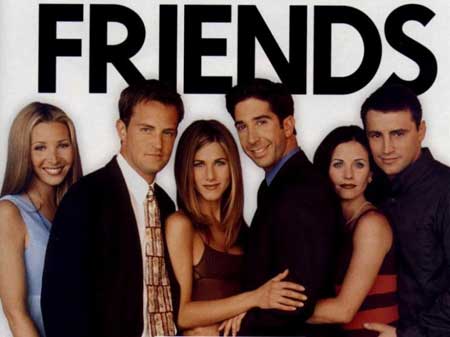
|
The rise of China has prompted US film and TV series directors to include Chinese elements in their works. The way China is portrayed in American TV series - one of the most representative cultural products of American society, values and ideologies - largely reflects mainstream American views about China's political system, social issues, economic development model and its rising global status. Chinese elements are evident in American movies and TV programs in three forms. First is the increasing presence of actors and actresses of Chinese origin in US films and TV series. Stereotypes of Chinese, like the murderous Dr Fu Manchu and the benevolent and heroic detective Charlie Chen, have been replaced by a new generation of Chinese-Americans, such as the characters played by Lucy Liu, making Chinese people more modern and diversified in their looks and values. Though largely confined to supporting roles, the Chinese characters have graduated from domestic servants, laundry workers and waiters to scientists in forensic laboratories and research institutions, government officials and highly skilled professionals. Second is the rapid growth in the product placement by Chinese brands, which appear in popular shows like The Big Bang Theory and Homeland. This has happened because proactive Chinese enterprises are approaching American producers and screenwriters to get greater exposure for their brands. And third is the blending of more China-related plots into US movies and TV programs. This blending, however, has revealed American mainstream prejudice against and misunderstanding of China and its culture. "If sent back to China, she will work as a slave in Shanghai." This was what Gabrielle says in Season III of Desperate Housewives of her maid, an illegal immigrant. To even suggest that a person could be forced to work as a "slave" anywhere in today's China, let alone Shanghai which is one of its most dynamic and open cities, is ridiculous. Talking about Chinese society and politics, Gabrielle portrays Shanghai as a poor and remote place, laments the lack of freedom and democracy in China, and says that repatriation from the US to China would be like falling from paradise into hell. Does this mean many Americans still see China as an impoverished and secluded country without democracy and freedom? In Season XII of South Park, Eric Cartmen, a plump boy, has a nightmare the night he watches the opening ceremony of the Beijing 2008 Olympics: he sees many Chinese beating drums at the same tempo as in the opening ceremony, their eyes blazing with something close to evil. A scared Eric cries out "the Chinese are gonna occupy the whole world ... America is gonna be defeated by them." South Park uses a naive boy's character to portray Americans' most politically incorrect views and fears. The rise of China has fueled the "China threat" theory. Eric's nightmare reflects something in the American subconscious: what Americans fear most is not an economically strong China, but a highly uniform and collective China. This is because the development model and values underpinning the rapidly growing Chinese economy is in conflict with the American value system. In 1979, the year Beijing and Washington established diplomatic relations, Deng Xiaoping wound up his visit to the US with a number of agreements on bilateral cultural exchange. The next year, China Central Television telecast The Man from Atlantis, the first ever American TV series shown in China. Three decades later, Chinese people no longer have to wait for CCTV to telecast an American program, because they can freely choose what and when to watch thanks to the Internet. American TV shows are produced for the mainstream American audience, not for avid Chinese viewers closely following American shows. But because of the Internet, many of those shows have generated a large audience in China, mainly among university students and white-collar workers, who are usually well educated and have independent views. Their understanding of American society and values comes largely from what they see in American TV shows and films. But since these viewers are sensitive, they can identify the clash between Eastern and Western cultures and are critical of the prejudice against Chinese people in American shows. Their criticisms are not blind patriotism or narrow nationalism, instead they are the result of the absurd feeling they have after watching Chinese culture being misinterpreted and distorted. Fictional representation of China is one way of increasing understanding between the Chinese and American people. Yet we should not forget that a TV show is a form of performing arts that relies on fabrication and exaggeration, whereas exchanges, understanding, and trust between the two countries should be based on sincerity, goodwill and inclusiveness. |
随着中国的崛起,美国的电影和电视剧导演越来越多地在自己的作品中加入中国元素。作为美国社会、价值观和意识形态最具代表性的文化载体之一,美国电视连续剧所刻画的中国很大程度上反映了美国主流对于中国政治制度、社会问题、经济发展模式和逐渐上升的国际地位的看法。 在美国影视作品中,有三种体现中国元素的形式是显而易见的。一是影视作品中华裔演员的增加。曾经僵化刻板的中国人形象,如邪恶凶残的傅满楚博士(Fu Manchu)和热心英勇陈查理侦探(Charlie Chan),已被新一代美籍华裔演员所取代,如刘玉玲(Lucy Liu),她饰演的角色让中国人的形象在衣着打扮和价值观上更现代化和多元化。尽管主要限于配角,但已经告别了此前美剧中法医实验室和科研机构的科学家、政府官员以及高科技人士的家庭佣人、洗熨工和服务员等华人角色。 二是美剧中中国品牌植入式广告的迅猛增长。例如,在十分流行的电视剧《生活大爆炸》和《国土安全》中就频繁出现中国品牌。这个现象缘于一些有前瞻性的中国企业家接触美国制片人和编剧,寻求他们的品牌在影视作品中有更大的曝光度。 三是在美剧中融入更多与中国相关的情节。然而,这种“混合”屡屡体现出美国主流对于中国和中国文化的误解和歧视。 “如果送回中国,她将成为在上海的苦工。”这是《绝望的主妇》第三季中加布里埃尔谈及她的非法移民女佣时的台词。其实,哪怕说某个人在今天中国的任何地方都意味着强迫做“苦工”都已属十分荒谬,何况上海是中国最活跃和最开放的城市。此外,在谈及中国社会和政治时,加布里埃尔将上海形容为穷乡僻壤。这是否意味着,在许多美国人眼中,中国依然是穷困潦倒和与世隔绝的国家? 在《南方公园》第十二季中,埃里克•卡特曼,一个胖嘟嘟的男孩,在观看2008年北京奥运会开幕式的当晚做了个噩梦,在梦中,他看见许多中国人以同样的节奏敲锣打鼓,就像在开幕式上所看到的那样,他们的眼睛燃烧着着近乎邪恶的目光。极度害怕的埃里克哭喊道“中国人将要占领世界……美国要被他们打败了。” 《南方公园》借用一个天真男孩的角色表达了美国人多数政治上不正确的观点和恐惧。中国崛起催生了“中国威胁论”。埃里克的梦魇反映了美国人潜意识里的某些想法:美国人最恐惧的并不是经济上强大的中国,而是高度统一和集体主义的中国。这是因为,支撑中国经济迅速增长的发展模式和价值观与美国的价值系统相冲突。 1979年中美建交时,邓小平访问美国,签署了一揽子双边文化交流的项目。次年,中国中央电视台播出《大西洋底来的人》,这是有史以来中国上映的第一部美国连续剧。30年后,中国人再也无需等中央电视台的美国节目,他们可以在互联网上随时选择自己想看的美剧。 美国电视连续剧服务于主流美国观众的,而非狂热追踪美剧的中国观众。但在互联网时代,大多数美剧也有数量众多的中国粉丝,他们主要是那些受过良好教育、有独立思想的大学生和白领阶层。 这些人对美国社会和美国价值观的了解很大程度上基于他们所看过的美国影视作品。但这些观众很敏感,能辨别其中中西文化的冲突,对美国影视作品中歧视中国人的现象持批评态度。他们的批评并非盲目的爱国主义和狭隘民族主义,相反,这些批评是因为他们看到中国文化被误解和扭曲后感到十分荒唐。 影视剧是种表演艺术。然而,我们也不应忘记,电视剧只是基于虚构和夸张的表演艺术形式。无论如何,两国的交流、理解和信任必须建立在真实、友好和包容的基础之上。 (作者:上海国际问题研究院台港澳研究中心季伊昕 译者 闻竹) 扫一扫,关注微博微信
  |
